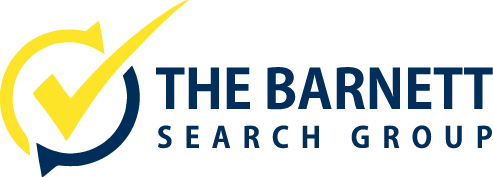- January 12, 2020
- Posted by: Eric Right
- Category: International

Why did you leave your last job?’ ‘What are your weaknesses?’ ‘If you were a type of fruit, what would you be, and why?’
OK, so some interview questions are easier to answer than others. But whilst you can’t predict exactly what you’ll be asked, any question has the potential to make you stumble – unless, of course, you’ve prepared in advance.
To help give you an idea of what could come up, here’s our list of common interview questions, and how to answer them:
Common interview questions and answers
Tell me about yourself…
A common opening question, partly because your interviewers want to know more about you, but mostly because they want to put you on the spot and see how you react.
They’ve given you complete control here, and you should take full advantage of it. They have not, however, asked for your life story.
Keep your answer pertinent, and try not to go off topic too much. You’re here to interview for a particular position, and you shouldn’t lose sight of this. Remember: the interviewer is not just making small talk.
Right answer: Should be about a two or three minutes long and briefly cover your education, your interest in the field, work history and experience.
Wrong answer: ‘Well, where do I start? I was born in 1974. A precocious child…’
What are your weaknesses…?
The first part of this question is realising that you actually have some (no, being a perfectionist doesn’t count).
Everyone has weaknesses or things that they can improve about themselves. And being honest with yourself here will save you a lot of time in the long run.
The best answers to this question take one of your weaknesses, and then give practical examples of how you’re trying to address it. A good example of this type of answer would be:
‘I used to find it difficult to work on simultaneous projects, preferring to finish on one task before starting another. However, since taking a time management course recently, I’ve learnt how to manage my schedule more effectively, making it easier to multi-task when necessary’.
Right answer: Weakness + how you’ve tried/are trying to address it = (eventually) strength
Wrong answer: ‘Kryptonite’
Why should you get this job?
This is unashamedly aimed at provoking a personal sales pitch.
As there will probably be a number of other candidates having interviews, this is your chance to demonstrate why you want the job, and why you would be a perfect fit for the company.
Essentially, the company is hiring for a reason (a brief summary of which can usually be found in the job description). You need to position yourself as the person to do this.
Right answer: ‘From what we’ve discussed so far, you’re looking to X (or, ‘having a problem with X’). In the past I have demonstrated X, Y and Z (experience and your main strengths), which have really helped my previous employer’
Wrong answer: ‘I just really need the money’
What are your salary expectations?
When completing your preparations for the interview, always have this question in the back of your mind.
Have a look at the average salary for someone in this industry, area, and who possesses similar skills to yourself, and you should get a basic idea.
But remember: this is only the first interview. You haven’t been offered the job. There’s no need at this stage to be try and begin negotiations. Giving a broad salary range will usually be enough to move on, but be prepared to back it up if you need to.
Just don’t be tempted to sell yourself short. If you’re not sure where to start, take a look at our average salary checker.
Right answer: A broad (but realistic) answer e.g. ‘I‘m looking for a starting salary somewhere between £25,000 and £30,000’
Wrong answer: ‘I’m not sure. How much are you on?’
Should I ask about salary at my interview?
Where do you see yourself in five years’ time?
Ah, the perennial job interview favourite.
What the interviewer really wants is to see that you’ve thought about your future, and gauge your ambition. They also want to verify that this isn’t just a stop gap position.
Although all of your answers should be tailored to the organisation and position you’ve applied for, this is especially the case with this question. If you’re going for an entry level position, for example, explain how you’d like your career to progress (e.g. ‘I’d like to progress to a Senior Software Engineer’ or ‘I see myself being a team leader…’).
If you’re going for a more senior position, explain how you’d be looking to move the company forward. Have a look at their business strategy or corporate objectives before the interview, and explain how you can help in achieving them.
Right answer: Be passionate about the industry. Fit your career goals around the organisation’s objectives, demonstrate ambition and exploit your strengths
Wrong answer: ‘On the other side of this desk’

